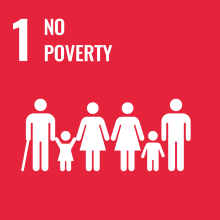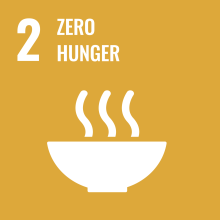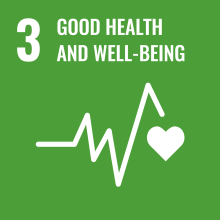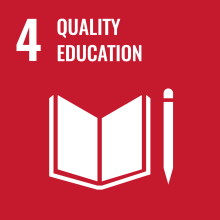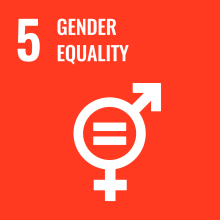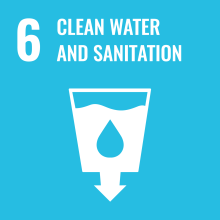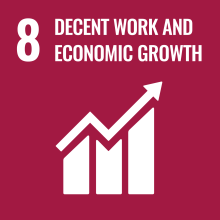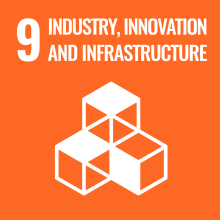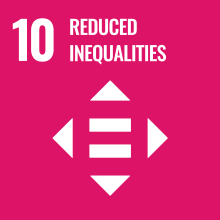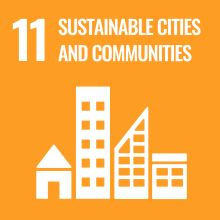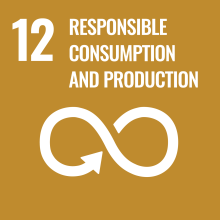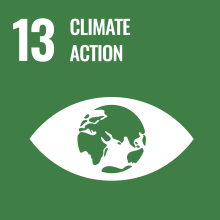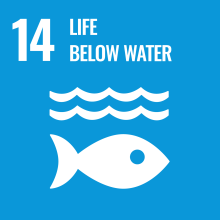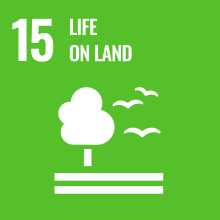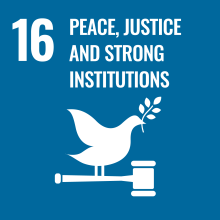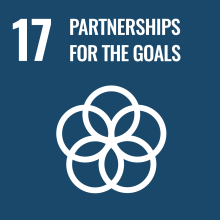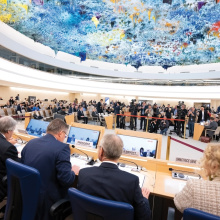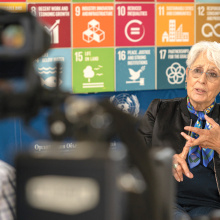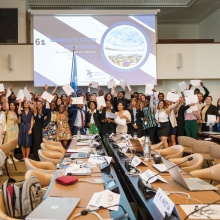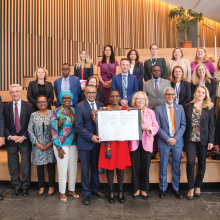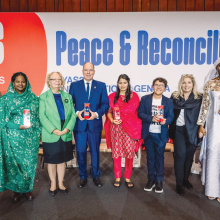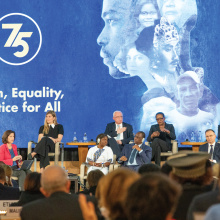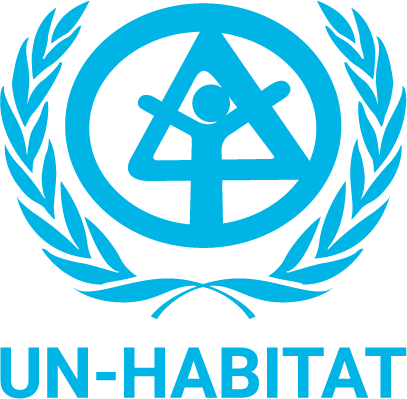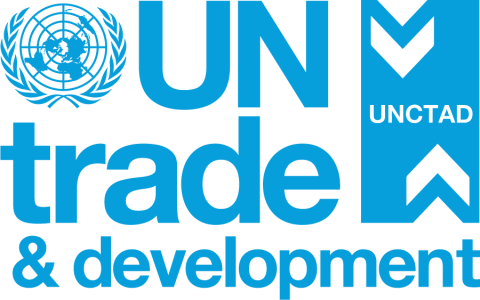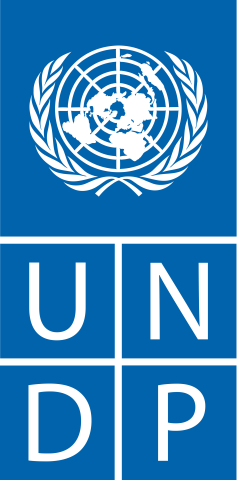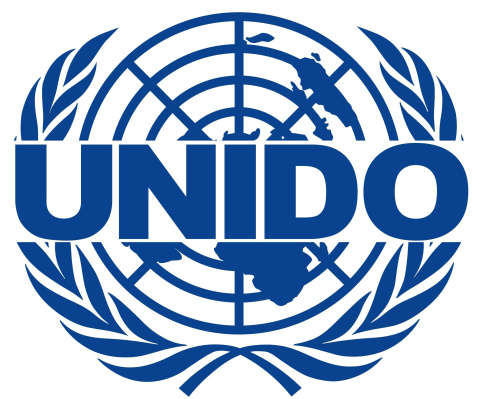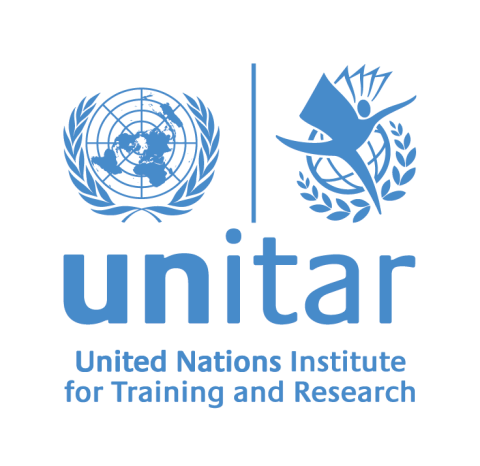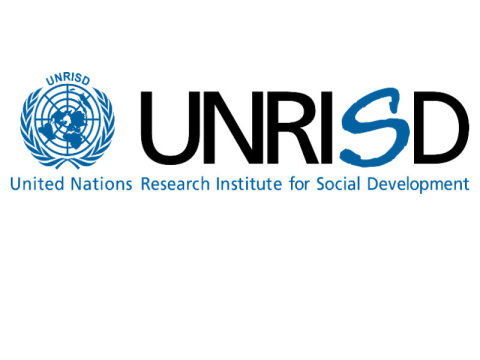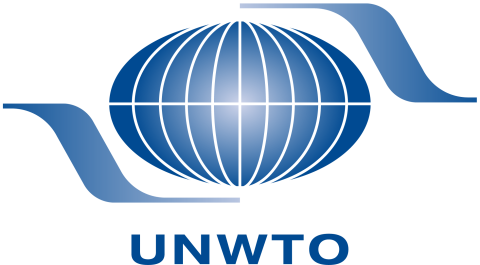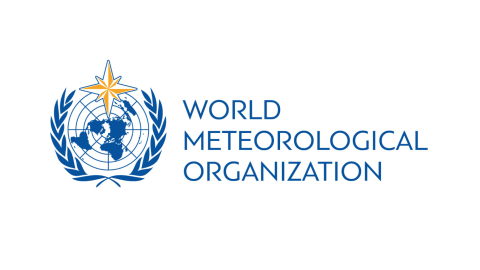
Строка навигации
What are the SDGs?
Tracking progress
The goals are formulated as short, clear statements. But how to achieve “zero hunger”, “quality education” or “affordable and clean energy”? A set of targets for each goals sets the course, defining what exactly we want to achieve. These 169 targets are linked to a total of 248 indicators allowing us to measure the progress made for each goal.
The central body to review this progress is the High-Level Political Forum which convenes every year. States are encouraged to carry out national reviews of their performance in regular intervals, and the states under review share their experiences, successes, and mistakes made on their path towards the 2030 Agenda.
Also on an annual basis, the Secretary-General publishes an SDG report, prepared with input from the entire UN System, and other international and regional organizations, statisticians and experts from academia and civil society.
According to the 2024 report, current progress falls far short of what is required to meet the SDGs. Without "massive investment and scaled up action", we will not achieve our goals.
External assessment:
Third entities, such as universities and NGOs independently track the progress countries make towards the SDGs. The results are largely the same as the UN assessments: no country is on track to achieving the goals by 2030. The SDG Transformation Center gives a detailed overview on the progress countries make on each goal, and also, how they positively or negatively impact other states on their respective sustainability path.
Goal 5, “gender equality”, has nine targets, including:
Target 5.5
Ensure women’s full and effective participation and equal opportunities for leadership at all levels of decision-making in political, economic and public life
Indicators:
5.5.1 Proportion of seats held by women in (a) national parliaments and (b) local governments
5.5.2 Proportion of women in managerial positions
Mention in 2024 SDG report:
"Parity in women’s participation in public life remains elusive, and in management positions, at current rates, parity will require another 176 years. Women carry an unfair burden of unpaid domestic and care work, spending 2.5 times more hours a day on it than men. [...] Data from 120 countries show that from 2019 to 2023, 56 positive legal reforms focused on removing discriminatory laws and establishing legal frameworks to advance gender equality. Twenty-two reforms centred on equal rights to employment and economic benefits and 18 on stopping violence against women. The reforms included lifting restrictions on women working in specific sectors, guaranteeing equal remuneration for work of equal value".
More than half of the time has elapsed
Only 15 years were given to the world community to change their course of action from the core and to achieve the Global Goals. In 2023, we passed the halfway point. That year’s SDG report is a comprehensive midpoint review, pointing out the development gaps.
Reasons for the weak performance are, in addition to the COVID-19 pandemic, emerging wars and conflicts, and many member states’ actions falling short of their commitments, notably in the fields of climate finance and financial support for low- and middle-income countries.
"Unless we act now, the 2030 Agenda will become an epitaph for a world that might have been."
António Guterres, UN Secretary-General
Five areas for immediate action:
The 2023 midterm report raises five points which Member States should tackle urgently.
Heads of State and Government should recommit to seven years of accelerated, sustained and transformative action, both nationally and internationally, to deliver on the promise of the Sustainable Development Goals.
Governments should advance concrete, integrated and targeted policies and actions to eradicate poverty, reduce inequality and end the war on nature, with a focus on advancing the rights of women and girls and empowering the most vulnerable.
Governments should strengthen national and subnational capacity, accountability and public institutions to deliver accelerated progress towards achieving the Sustainable Development Goals.
The international community should recommit at the SDG Summit to deliver on the Addis Ababa Action Agenda and to mobilize the resources and investment needed for developing countries to achieve the Sustainable Development Goals, particularly those in special situations and experiencing acute vulnerability.
Member States should facilitate the continued strengthening of the United Nations development system and boost the capacity of the multilateral system to tackle emerging challenges and address Sustainable Development Goals-related gaps and weaknesses in the international architecture that have emerged since 2015.
UN Geneva has a role to play
The 2030 Agenda for Sustainable Development provides a blueprint for the work of the Secretariat and, therefore, for the UN in Geneva. The SDGs are embedded in everything UN Geneva does and sparked new partnerships and intensified collaboration across Geneva’s ecosystem, consisting of over 100 international organization, 180 Member State representations, some 400 NGOs, a dynamic private sector and prominent academic institutions. Geneva has therefore become an important hub for SDG implementation on a wide range of topics – from health, security and humanitarian affairs, to migration, digital policy and intellectual property.
The Perception Change Project (PCP), launched by the Director-General in 2014 and collaborating with over 100 partners, showcases the relevance and impact of the UN’s work on everybody’s life worldwide and encourages public engagement in implementing the 2030 Agenda. Examples of PCP’s work include the NotAWoman’sJob exhibition series; and a range of publications, notably action booklets and children’s books, to mention just a few of the examples of its output. One noteworthy PCP project has been the mapping of International Geneva with regards to their work towards attaining the SDGs.
The Beyond Lab in the Office of the UN Geneva Director-General is an innovation space, exploring ways to drive systems change for sustainability. The Beyond Lab looks, for example, at ways to measure development beyond a country’s GDP. The “Youth moving beyond GDP” initiative is part of an intergenerational dialogue series organized by the Beyond Lab. In its “Futures Balance” project, the Beyond Lab provides a tool for governments to identify sustainable investment areas – so that future generations will benefit from governments’ decisions made today.
UN Geneva supports the Common Agenda of the Secretary General, his vision for the future of global cooperation. The Common Agenda calls for inclusive, networked, and effective multilateralism to better respond and deliver for the people and planet and to get the world back on track by turbocharging action on the Sustainable Development Goals. The Summit of the Future, held in September 2024, was a major milestone on this path. Its main outcome document, the Pact for the Future, touches different areas, such as peace and security, sustainable development, digital cooperation, youth and future generations as well as human rights and gender. It stipulates some changes within the structure of the UN, including a Security Council reform, but its focus lies on addressing upcoming challenges, for example how to govern AI, and on considering the needs of future generations. In the area of sustainable development, a reform of the international financial sector was decided, improving services and support for developing countries. If applied as agreed, the Pact for the Future will turbocharge the implementation of the SGDs, and it can be a game changer towards a more sustainable world.
UN Geneva is being scrutinized as part of the UN's internal environmental sustainability initiative, Greening the Blue. In this context, UN Geneva is committed to reducing water, waste, and CO2 emissions.
See more initiatives from the International Geneva community to foster the SDGs
Organizations working on the SDGs
Международный, беспристрастный и независимый механизм — Сирия (МММ) был создан в декабре 2016 года Генеральной Ассамблеей для оказания помощи в расследовании и судебном преследовании лиц, ответственных за самые серьезные преступления по международному праву, совершенные в Сирийской Арабской [...]
Независимый институт — это структура ООН, созданная Генеральной Ассамблеей 29 июня 2023 года в ответ на срочные призывы к действиям со стороны членов семей многих тысяч пропавших без вести лиц в Сирии, чтобы определить их судьбу и местонахождение. Учредительная резолюция МИМП уполномочивает его:
- Выяс [...]
Программа Организации Объединенных Наций по населенным пунктам, UN-HABITAT, является агентством Организации Объединенных Наций по населенным пунктам. Генеральная Ассамблея ООН поручила ему продвигать социально и экологически устойчивые города и города с целью обеспечения всех адекватным жильем.
ООН торговля и развитие (UNCTAD) является ведущим учреждением ООН, занимающимся вопросами торговли и развития. Это постоянный межправительственный орган, учрежденный Генеральной Ассамблеей Организации Объединенных Наций в 1964 году. ЮНКТАД поддерживает развивающиеся страны в более справедливом и [...]
ПРООН является ведущей организацией системы Организации Объединенных Наций, борющейся за искоренение несправедливости бедности, неравенства и изменения климата. Работая с широкой сетью экспертов и партнеров в 170 странах, агентство помогает нациям создавать комплексные и долговременные решения для [...]
Являясь специальным учебным подразделением системы Организации Объединенных Наций, Учебный и научно-исследовательский институт Организации Объединенных Наций (ЮНИТАР) предоставляет инновационные решения в области обучения отдельным лицам, организациям и учреждениям для улучшения глобального процесса [...]
Женевское отделение Управления по вопросам разоружения помогает государствам-членам поддерживать их усилия в области разоружения, контроля над вооружениями и нераспространения, направленные на достижение цели всеобщего и полного разоружения под строгим и эффективным международным контролем.
Сектор [...]
Расположенное во Дворце Наций, отделение ООН в Женеве (ЮНОГ) является представительством Генерального секретаря в Женеве. Являясь координационным центром многосторонней дипломатии, ЮНОГ в прошлом году провело около 8000 встреч, что сделало его одним из самых загруженных конференц-центров в мире. С [...]
ЮНОПС помогает ООН и ее партнерам обеспечивать мир и безопасность, гуманитарные решения и решения в области развития. Их миссия состоит в том, чтобы помочь людям построить лучшую жизнь, а странам достичь мира и устойчивого развития.
Они сосредоточены на реализации, привержены ценностям ООН и [...]
ЮНРИСД является автономным исследовательским институтом в системе ООН, который проводит междисциплинарные исследования и политический анализ социальных аспектов проблем современного развития. ЮНРИСД сотрудничает с обширной сетью партнеров из академического, политического, практического и [...]
Присутствие ЮНВТО в Женеве может существенно усилить положительное воздействие туризма как двигателя развития. В рамках объема работы Женевского отделения связи ЮНВТО (GVLO) по представлению ЮНВТО в системе ООН и дипломатических миссиях в Женеве, а также по созданию стратегических партнерских [...]


